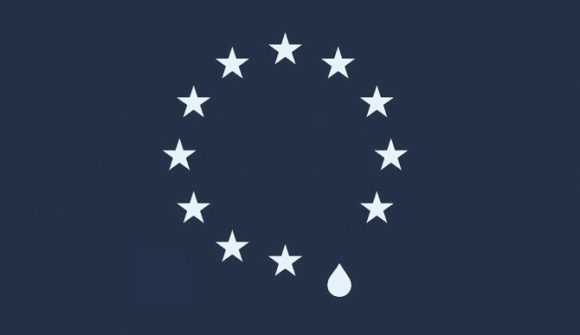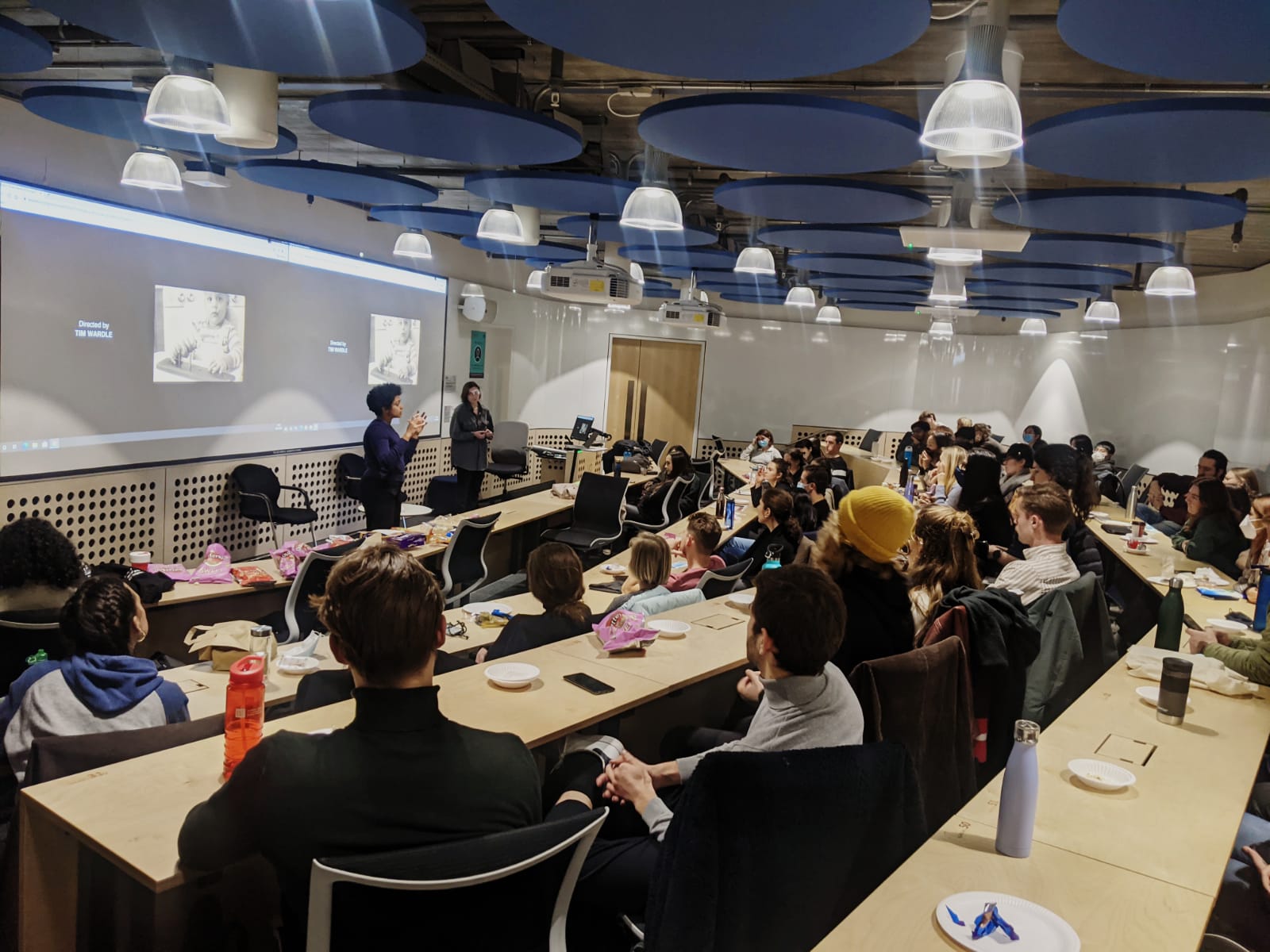PhD candidate Brett Heasman reflects on the psychological impact of the EU referendum. The views and opinions expressed are those of the author, and not the position of the Psychology@LSE blog, nor of the London School of Economics.
 Whether you voted to remain or leave, the EU referendum has unquestionably altered our cultural landscape, and we now face a critical struggle to re-establish a sense of national identity both within our nation and with other nations.
Whether you voted to remain or leave, the EU referendum has unquestionably altered our cultural landscape, and we now face a critical struggle to re-establish a sense of national identity both within our nation and with other nations.
Already it seems the autopsy is taking place – who killed modern progressive Britain? Was it Tory in-fighting by the Bullingdon boys? Was it pint-posing Farage with his inane Jack-in-the-box smile? Was it the overpaid Euro bureaucrats, swimming in their wealth à la Scrooge McDuck? Was it immigrants trying to colonise the nation which colonised half the world? Was it the uneducated proletariat, struggling to grapple with long sentences and even longer numbers?
These kinds of arguments underscored the EU referendum debate as people jostled to position their voting preference as belonging to the in-group that mattered. I acknowledge them here only insofar as to say that we must be conscious not to reproduce them to shape our post-referendum debate, otherwise we will not have a debate, just the aftermath of a decaying nation.
Right now we are in the eye of the post-EU referendum storm, and although there are many factors for the impending Brexit world to discuss, there’s no doubt there are also many identities which are at stake in those discussions. Sensitivities are high – whatever is said is more likely to be used as ammunition to fuel existing arguments than to be considered on its argumentative merit alone. This makes writing a blog on this subject tricky to say the least.
My goal therefore is not to discuss the political issues and arguments that took place or are likely to occur, but to look at the wider psychological processes which have framed those political issues and arguments. If we can reflect a little more on the macro-level psychology of our nationhood, then hopefully this can provide an anchor point for a more constructive debate, a space in which we can begin the complex renegotiation of our identities and goals vis-a-vis each other without falling into the trap of apportioning blame.
Social psychology suggests we need a super-ordinate goal to remove inter-group boundaries and create unity. My starting point is to suggest that the system of the referendum has served to agitate and amplify cultural tensions. Let me explain how by listing three ways in which the EU referendum isn’t actually democratic in the sense of objectively taking the ‘pulse’ of the nation, but actually psychologically transformative, in the sense of acting as a pace-maker which sets its own rhythm for how the nation should think.
1) Democracy – the right to speak up and the patience to listen.
The word democracy is used often in the West, proudly I should add, to describe our political philosophy. However if you push people (and politicians) for a definition of what they mean when they use the word ‘democratic’, they usually mean freedom of speech, the equal right for everyone to speak up. This is undoubtedly important. But there is another side to everyone having the right to speak up, and that is everyone having the patience to listen.
Listening is much less talked about in our definition of democracy. Moreover, it is not built into the instrument of the referendum. By voting in the referendum, you exercise the right to speak up, and everyone’s voice counts equally, vote for vote. But the instrument of the referendum only listens to the question it has set, and not the reasons or motivations for why people have voted.
This is problematic because the question of “should we stay or should we go” is very different from the question of “how do we improve our existing deal with the EU”. Much of the trauma we have sustained in terms of cultural divisions is due to incompatibility of these two very different questions. ‘How we should improve our deal with the EU’ involves a colossal number of factors, but it was framed by the referendum question which only listened for two factors, ‘in’ or ‘out’.
If you are going to make the referendum work as an instrument of democracy, then it needs to listen, as well as give us the ability to speak up. We needed ballot papers with a text box where we could write what we think the UK should do, and the results would be a poll of everything that people said. Not a box-ticking exercise for a question which has no constructive relationship with the original problem at hand. The stakes were too high for that kind of reductionism.
2) We can only hear extreme views in a noisy public sphere.
The EU referendum not only dichotomised a complex situation, it dichotomised its people. There were so many complex reasons that had to be distilled into the action of voting Leave or Remain. But everyone sharing their views, and not listening to each other, made for a very noisy public sphere. In that noise, only extreme views were heard. It was around extreme views that the debate came to gravitate towards.
This referendum feeds into a more general problem in the West (e.g. US) where there is an abundance of opinion in the public sphere, but a much smaller patience to listen to opinion, leading to extreme views being the only views that gain attention. Our axis of politics is shifting in a culturally damaging way. Left and right wing politics, whatever their differences, at least have the philosophy of progression at their heart. But the new axis of politics emerging is insular versus cosmopolitan. A desire to reverse history to some rose-tinted past versus the desire to move forward and embrace an increasingly liberal world. The EU referendum crushed our political spectrum in the UK, and what it spat out was a near 50/50 coin-toss between looking forward and looking backward.
This to a large extent explains the cultural trauma many people are experiencing following the referendum result. Young people, when given the narrow choice of the referendum, overwhelmingly voted to hold on to ties with Europe. Given that young people are the ones who will have to live the longest with the consequences of the EU referendum, it is sad that the coin-toss result very much reflects Britain’s past, not its future.
3) Politicians can handle the fallout from debates, people cannot.
The EU referendum also transformed our psychology in another way by subverting the whole existing infrastructure of political representation and decision-making we have in the UK, and leaving lay people exposed to the cultural fallout of public debate.
In the UK we elect politicians to represent our voice, and we pay politicians to figure out matters of a political nature. This system of democracy, although not perfect, at least means that debates take place in a structured environment (the House of Commons) chaired by a speaker (so that everyone listens) involving politicians who have the time and resources to learn the intricacies of a problem at hand, and who are seasoned debaters, (so drawn battle lines are not permanent, but rather regularly renegotiated from issue to issue).
The referendum is psychologically transformative because it subverts this system of democracy by inverting the relationship between people and the political representatives they elect. In referendums politicians defer the responsibility of decision-making back on to the people they are supposed to represent and make decisions for.
Asking a nation to decide on a complex political matter such as the Britain’s relationship with the EU requires the unrealistic training of an entire nation on the issue at hand. This is what exasperated cultural divisions between people who identified as educated and the people that were portrayed as uneducated. There was a widespread feeling that disagreement between voters was attributable to the fact that the ‘other’ had misinterpreted the facts. It didn’t help that the facts were so poorly presented by politicians to the people in the first place.
The biggest problem now is that the battle lines drawn during the EU referendum debate will persist. Whereas politicians form and break alliances in highly adaptive ways, lay people do not, because their identity becomes deeply integrated into the act of voting. The fall-out is far-reaching, which is why the first challenge we have following the EU referendum is to rebuild unity, as so many politicians have called for. But how do you do this when the cultural fault lines have run free to rupture our nationhood in several different ways, between young and old, between white British and ethnic minority, between social classes, between religions, between geographical regions, between levels of education, and so on?
This is why the referendum is psychologically transformative – it has laid down battle lines and they run deep. The map of how people voted, and other statistics from the referendum, are not simply an objective measure of how people voted in the debate – they are the blueprint for how we now conceptualise our own identity relative to others as we move forward into an uncertain future.
Where to from here for our culture?
Of course, the referendum will instigate a range of political changes and discussions which are to follow. But culturally speaking, the psychologically transformative effect of the referendum highlights some pressing issues which need attention.
First, there is the danger that people who have racist views have had their voices legitimised through the process of the referendum. That is not to say that people who voted Leave are all racists, which is another stereotype which is of no use whatsoever. It is simply what happens when the political spectrum of the UK gets crushed into two lumps – the miniscule number of those who are racist get swept up into a powerful political movement in which they suddenly have opportunity to use their vote to enact hatred of others. Even though miniscule, these people who feel that their views now represent the majority, can do great damage. It is sad to see that there has been a rapid increase in hate-crime following the EU referendum. This is our most pressing need – to annex the racist faction from the politically legitimate views of the Leave voters.
A second need is to move away from a culture of blame imposed by the Remain and Leave campaigns of the referendum. Although the consequences of the referendum are far reaching, the motivations for why people voted are complex. To build bridges we need to listen to that complexity, and one way of doing that is to see our voting behaviour as very much the product of the political system which promoted it. This is what this blog has attempted to illustrate – that the referendum, far from objectively reflecting our minds, has psychologically transformed our sense of identity and culture, because the referendum itself is such a poorly conceived instrument of democracy.
Brett Heasman is a PhD candidate in the Department of Social Psychology at LSE researching perspective-taking in families involving people with autism. His research is funded by the Economic and Social Research Council (ESRC). Twitter contact: @Brett_Heasman





Fascinating. I do think the role of the media and national politicians is crucial in all of this too. The perceived wisdom, believed by the spin doctors and their political masters, that the population will not engage in lengthy discourse (including ‘listening’) is a barrier to an informed debate. This in turns simplifies the whole political landscape into binary choices – left/right, in/out, Conservative/Labour, for/against… Our recent leaders since the 1990’s have pandered to this principle and actively promoted it as an easy (I would say, lazy) way to communicate real life human, messy problems that actually require people to think and expend interlectual effort to understand the issues.
Once you operate in a binary world you loose any sense of the uncertainties that surround real life decisions. The political process is, by its true nature, one of compromise, uncertainty and risk but people are fed a diet of certainties and then get upset that the future is different to that image they thought they were voting for.
This is a wider issue for western style democracies beyond the recent referendum.
How we cure the deep fractures highlight by the recent EU referendum and build a more cohesive society is the big question. Personally, I believe that the UK is inherently a centralist society; I think (maybe I am self-delusional ) the average ‘man on the Clapham omnibus’ is instinctively suspicious of extremes and people who propound certainty.
We need conviction politicians who understand the arts of compromise, listening, communication and leadership. There are few current political personas out there that currently fill that brief. I did live in hope for 5 years during the last parliament when coalition government seemed to deliver hard decisions that were absolutely necessary but tempered by alternative beliefs – unfortunately the spin doctors and more extreme political leaders knocked this on the head in the previous referendum on PR by offering a binary choice – again!